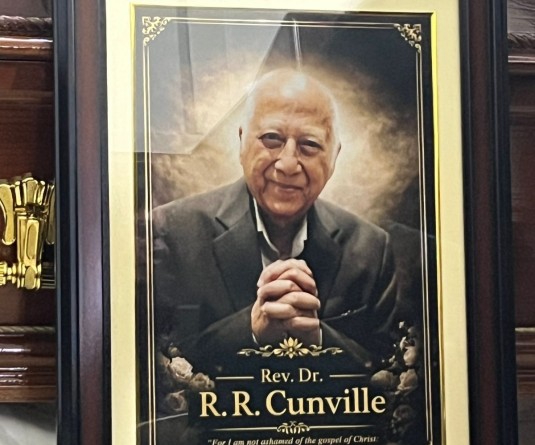
Dr John Mohan Razu
On the 5th of Septembers I had received several WhatsApp messages from some students wishing me as a teacher by offering a number of compliments. Every year a few select students not only wishing and reminding of 5th September, but pushed me to ponder over on some of the terms they used thus prompted me to write. Former president Radhakrishnan was a seminal philosopher and educator. He believed that true education and proper knowledge tends to create morally upright humans.
Like critical theorists who believe in education should lead to change such as Socrates Radhakrishnan believed that education is the kindling of a flame, not a filling vessel. S., for him education should not be a process of dumping ground prescribing knowledge, data processing, analysis, and methodologies, and approaches, but igniting passion, critical inquiry and thinking and consciousness. As Sumit Paul rightly observes that “Education is not a passive process of filling a vessel, but an active journey of discovery where the flame of knowledge is sparked and nurtured.”
He adds: “Education is not a passive process of filling a vessel, but an active journey of discovery where the flame of knowledge is sparked and nurtured. True education should inspire individuals to think, question, societal norms, and seek wisdom. The purpose of learning goes beyond mere accumulation; it encourages students to become lifelong learners and thinkers.” He adds further by referring to Radhakrishnan that “true virtue and morality could only be achieved through the attainment of knowledge and understanding.”
He adds that Radhakrishnan argued that “ignorance was the root cause of all wrongdoing and misdeeds, as it prevented individuals from recognizing what was truly good and just. He believed that by pursuing knowledge and questioning one’s own beliefs, individuals could elevate themselves towards a higher state of consciousness and live a more virtuous life.” His timeless understanding and purpose of education continues to illumine sparks the importance of education in our life and also for the future.
Continuing on Radhakrishnan’s teachings “serves as a timeless reminder that wisdom and understanding are the guiding lights in distinguishing right from wrong, and the ignorance is the breeding ground for all forms of evil and injustice.” Substantiating further, “He believed that ignorance is the root and stem of all evil. People do not intentionally commit evil acts but do so out of a lack of knowledge and understanding. It is only through true knowledge and awareness that individuals can discern right from wrong and act virtuously. Ignorance prevents individuals from recognizing the consequences of their actions and perpetuates a cycle of wrongdoing.” In broader sense, he brings-in moral well-being is inculcated in education.
Building his arguments Radhakrishnan said, “God lives, feels and suffers in every one of us, and in course of time. He attributes, knowledge, beauty and love will be revealed in each of us.” He has been practical in his thinking and as an educationist said: “My ambition is not only to chronicle but to interpret and reveal the movement of the mind and unfold the sources of India in the profound plane of human nature”. Since he was a pragmatist, he combined education with philosophy and moral values he fused both together in such ways that intelligence plus character must be the goal of true education.
Getting into deeper levels he elucidates that “The main function of education of a university is not to grant degrees and diplomas, but to develop the university spirit and advance learning. The former is impossible without corporate life, the latter without honours and postgraduates”. Those who come in line with critical analysis belong to diverse disciplines such as philosophy, history, politics, economics, social sciences and host of other disciplines believe in the outcome of education. The process is critical thinking of us and the world around us and the outcome ought to be changing those systems and structures that throttle and suffocate humanity.
This is why S. Radhakrishnan embarked on moral approach to education that pushed him to one of the greatest philosophers of all times, showing his discomfort to being called a professor. Education ought to be for life. If it is for acquiring knowledge, then it should be dumped. All those critical thinkers have said that education ought to facilitate developing skills and critical thinking, so that the dominant assumptions and pre-suppositions could be unfolded and thus be peeled layer by layer. In line to it, Rabindranath Tagore said: “The highest education is that which does not merely give us information but makes our life in harmony with all existence.” This is what education is all about, not a process of filling a vessel, but instilling critical thinking leaders to societal awareness and political consciousness.





